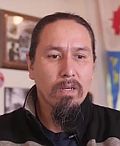ECOLOGICAL ACCOUNTING PROCESS: “EAP provides a methodology to establish what it is worth to the community to invest in ongoing maintenance and management of a creekshed,” stated Kim Stephens when he updated Metro Vancouver elected representatives about successes flowing from inter-regional collaboration (Sept 2018)

“On behalf of the Metro Vancouver Utilities Committee, I invited Kim Stephens to provide us with an update on inter-regional collaboration through the Georgia Basin Inter-Regional Education Initiative,” stated Mayor Darrell Mussatto, Chair. In 2017-2018, federal-provincial funding enabled the Partnership to complete two demonstration applications of the Ecological Accounting Process on Vancouver Island.










